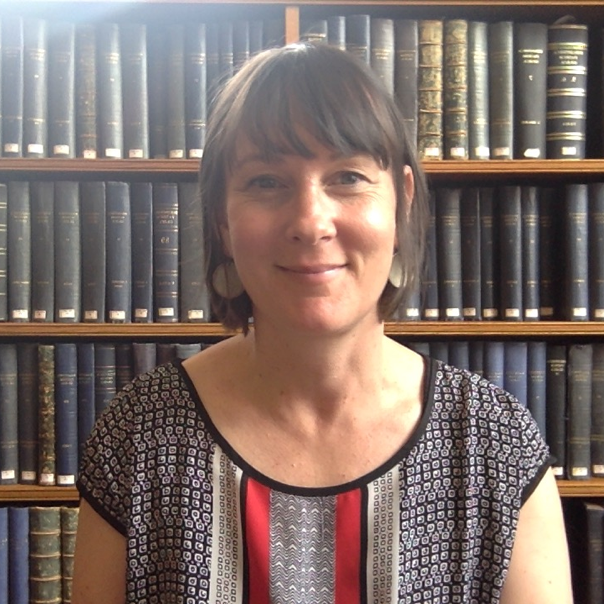Episode Transcript
[00:00:05] Speaker A: You're listening to by the well, a lectionary based podcast preaches recorded on the land of the Wurundjeri people.
Hi everyone, I'm Robyn Whittaker.
[00:00:19] Speaker B: And I'm Shaun Wintour.
[00:00:21] Speaker A: For those of you who haven't been following along on our Facebook page or might be new to us, we've expanded the team for this year, the 2022 year, and Sean is one of our new rotating set of co hosts. He's a Baptist minister, head of Pilgrim Theological College and a Pauline Scholar. Anything else you want to add? And a great cook.
[00:00:42] Speaker B: I think that's probably enough for now. And no stranger to buy the well and been involved in both supporting and contributing to the podcast over the last year or two. So it's great to be here and great to be more formally involved.
The readings that we're looking at today are the readings for January 23, 2022, and they're the readings for the third Sunday of Epiphany. And over the next two weeks, Robin and I are going to pick up the Hebrew Bible Old Testament readings for Epiphany 3 and 4. But then the New Testament readings, both the Gospel and the Epistle readings from Luke 4 and 1 Corinthians are kind of continuous with each other. So there'll be bits of the conversation that will flow on from one to the other. But let's begin with our Hebrew Bible reading for Epiphany 3, which is this reading from Nehemiah chapter 8, perhaps a passage that people wouldn't know particularly well, and an account of something to do with the kind of public reading and interpretation of the law. What's going on in this passage? Rob?
[00:01:43] Speaker A: Yeah, I actually love Nehemiah 8, although most people probably it's not their go to passage. It's one of the few parts of the Bible where we get a scene in Scripture describing the reading and interpretation of Scripture. So that that kind of, you know, wonderful reflection on the pages of Scripture. The scenario here is where post exile. So we've got a scene of the regathering of people that have been forcibly deported to Babylon. It's now the Persian empire in charge, and King Cyrus of Persia has actually allowed the Jews to return to Jerusalem and actually mandated them with rebuilding the temple. And so we have this scene of kind of regathering and the date, which doesn't mean an awful lot to us here is actually what would become Rosh Hashanah, which is new year. So there's a sense of a new beginning, a newly regathered community. And what they do first and foremost is. I mean, they've built the walls and done some practical things, but is to the public reading of Torah. And one of the things I want to point out, the NRSV translates this as the reading of the book of the law of Moses. And I know we often translate that word, law. I don't love it, because law we think immediately very legalistic, whereas the Torah of Moses is the teaching of Moses or the instruction of Moses. So it's the reading of the whole Torah, which is kind of equivalent to our Pentateuch.
[00:03:08] Speaker B: Yeah. And it will be interesting to think about kind of how you do the reading of those first five books of the Hebrew Bible and in terms of them.
[00:03:17] Speaker A: But.
[00:03:17] Speaker B: But really it's a scene that kind of evokes the significance of those books for the reconstitution, the reformation of the people of Israel. And as such, it seems to allude back to earlier times when the people have been reformed or renewed through something to do with the discovery or. I'm thinking of Josiah's reforms and the discovery of the book of Deuteronomy in the Temple and the way in which that leads to reform within the covenant community. So as the people regather after this time of trauma and crisis, they turn to Scripture, what they have as scripture at this point as the basis for this kind of rebuilding, this reconstitution of the life of the community. Rob, can you just say a word about the relationship between that kind of reform and then the kind of rebuilding of the Temple side? Because Ezra and Nehemiah are partly about temple building projects, but they're also about community building projects. So what's the relationship between Torah interpretation and temple in this text?
[00:04:16] Speaker A: I'm not sure I have a really full answer, except that they are sort of both complementary and in some kind of tension. So temple is primarily about rebuilding of cult. And you know, what you just said about reform and this returning to Scripture, we'll see that again in the first century ce, after the second temple's destroyed, where again in those later Jewish texts, there's a return to Torah. So that becomes, you know, when the temple has come and gone as a building. Scripture is the kind of abiding identity and, and kind of, you know, proclamation of God's continuing presence in their midst in the way that the temple is or was designed to be the house of God, literally the place where God dwelt.
[00:04:56] Speaker B: And the law of Moses gives specific instructions about how the tabernacle should be bu and what should happen. But there's this really interesting creative relationship in the Hebrew Bible that you're right, then passes into the early Christian movement about, you know, how are the people of God renewed and reformed and how, how is their social identity marked? What's the key indicator that this is a people that are formed by a shared understanding, a shared set of practices. And on the one hand you've got this kind of construction of temple building material reality around you, and on the other hand you've got this commitment to this work of interpretation which particularly in the post exilic period where we think many of our Hebrew Bible texts were eventually composed and reached their final form, this notion that the study of the Word becomes an absolutely crucial dimension of what it means to be the people of God comes to the fore. And this chapter seems to play into that, I think.
[00:05:53] Speaker A: Exactly. And I mean, there's a frustration this week because all the readings are so good. So preachers have some hard choices to make. But I think at the start of a year, as we're sort of regathering after people, particularly in the Australian context, have often been on school holidays and summer holidays and Christmas breaks and things, it's a chance to actually reflect with your community about the place, the Bible and how you approach the Bible. There's a couple of things I just want to point out here too. Thematically, the text is explicit and repeats it, that there are men, women and those able to have understanding, so probably older children that's very inclusive. Whereas the temple women and children would be excluded from the inner parts where only men went and with purification. This is a gathering that's incredibly inclusive. And then the reading itself is done by Ezra, who's a priest, scribe, scholar, but there's all these named men on his right and his left who were probably laymen.
And then later on we get the Levites in verse seven. So there's this sense that the reading and interpretation of Scripture is done by the whole community, not just the priest. There's lay people, there's scholars, there's a number of roles. And then of course that word interpretation in verse 8, which can mean translation or interpretation or explanation, but we've got regathered community. I mean historically, a couple of generations that have been in exile, there's a very real possibility they've actually forgotten the language. They literally need it translated for them. But also this sense that it needs to be explained for a new context. And there's something, I mean, that's the work we do in preaching and Bible Study. We're always trying to.
[00:07:30] Speaker B: Yeah.
[00:07:31] Speaker A: Make sense of Scripture for our context.
[00:07:34] Speaker B: So that notion that the text itself, the reading of the text itself doesn't. Doesn't do anything unless there's a process of interpretation and translation and grappling with.
[00:07:44] Speaker A: It, making sense of it.
[00:07:45] Speaker B: Yep, that's exactly right. And I think. I mean, Judaism, of course, has always known this, has always regarded Scripture as something that has been a matter not just of the text itself, but the text plus its interpretation. Hence that long history of kind of interpretation of the Torah within the Jewish tradition. And it's a weird thing, of course, that Christian faith has sometimes collapsed into this idea that kind of all I need is the Bible and the words on the page, and that will tell me what to do and how to do it. And I don't need anyone to explain it to me or to try and understand it or do the work of translation. I wanted to point out that the identity of Ezra as a scribe will be really important, I think, when we come to the Luke 4 passages. Yes, in a minute. Because that scribal identity is a really significant background, I think, to understanding what's going on.
[00:08:31] Speaker A: Yes. And the way that Jews, as you said, interacted with their. Their scriptures and. And look, where this passage goes on too, is the people commit. One of their responses is that people commit themselves to studying the Torah. So there is this commitment to ongoing Bible study, if you like.
So, yeah, when I reread this and was thinking about the podcast, I couldn't help but remember in my first parish where I ran a lectionary Bible study group, and then I had parishioners who wanted to actually learn some Greek because obviously I was mentioning Greek words too often or something. And I had this older minister say to me at a presbytery meeting once, why are you teaching them all this stuff? Aren't you worried that they'll know as much as you and be able to critique your sermons? Which stuck with me because it was such an appalling. But you know, that this just dismantles that idea that, you know, the priests guard the knowledge and it isn't shared. The whole community studies God's Word, which of course is a very Protestanty kind of.
[00:09:25] Speaker B: I think that's right. And look here you have two New Testament scholars on this week's podcast saying, more Bible study, people, more Bible study.
[00:09:34] Speaker A: We don't have a bias.
[00:09:35] Speaker B: If you. If you can get that as an outcome of Epiphany 3, then that would be a good outcome, I think.
[00:09:39] Speaker A: Exactly.
So the gospel reading is Luke, chapter four 14 to 21. Situate us, Sean, where. Where are we here in Luke's Gospel?
[00:09:57] Speaker B: Well, we're at the beginning of Jesus public ministry. So the first three chapters of Luke's Gospel have effectively been the birth narratives. So that's the story that we will have celebrated over the season of Christmas. So it's right in Epiphany that we kind of move into this opening of the public ministry. And Luke has an account of Jesus being tempted after being in the wilderness. And basically then Jesus comes into Nazareth in the power of the Holy Spirit to Galilee and enters a synagogue. So this is a bit different from the way in which. The way that other gospels construct the start of Jesus public ministry. In the Gospel of Mark. So Jesus comes down from the wilderness, is baptized. Luke holds off the baptism story for a bit of an interlude a bit later on. And then Jesus just kind of gets into the villages and into the homes of people in Capernaum and around the Sea of Galilee and starts preaching and healing the sick. In Luke, we have what seems to be this programmatic entry into the synagogue. And this is really interesting, not least in relation to that Nehemiah text, the synagogue in the first century. It's difficult to know quite how people understood it, but there was obviously some kind of relationship between what happened in the synagogue and what happened in the temple. Not at the level of sacrifice. So we don't think that sacrifices or the cult was practiced in the synagogue, but the interpretation of Torah was.
So Jesus enters into this public space and what's kind of prophesied, what exists at the level of potential in the birth narratives, this is the one who will come to redeem Israel and that now starts to be delivered.
There's a program for Jesus public ministry. And the Nazareth episode seems to be the kind of announcement of that program. Some people often refer to it as a Nazareth manifesto.
[00:11:53] Speaker A: Yeah. And I mean, going back, picking up that connection you mentioned before with Ezra and the scribe, I mean, there's a couple of things to note here. We have this lovely little phrase that Jesus is in the synagogue on the Sabbath, as was his custom. So this is a Jewish man doing typical going to synagogue on Sabbath, but when he gets up to read the scroll, it puts him as a kind of a scribal rabbi. Now, we don't know historically if Jesus was even particularly literate. Right.
[00:12:21] Speaker B: Well, we could have a long conversation about, about that question and a shout out to a particularly important and very, very good recent book. So, Chris Keith, book Jesus and scribal literacy or in the scribal elites. And I think Keith gets this about right. So what he says is, statistically, it's highly unlikely that Jesus was literate.
[00:12:44] Speaker A: Yeah. Or really any of the disciples.
[00:12:46] Speaker B: Or really any other disciples. So this is a. This literacy is something that belongs largely to the elite in a society and was particularly related to scribes. So scribal work was basically the work of being able to read and understand and translate and therefore interpret texts.
So whatever the scene that Luke is giving us here, there's a kind of fictional dimension to it. But the question is, well, what's the kind of historical reality that the fiction might be pointing us to? And it's this idea that Jesus kind of assumed the place of a scribe.
[00:13:19] Speaker A: Yes.
[00:13:20] Speaker B: That even though he wasn't literate, he kind of assumed the place of a literate scribe and claimed the authority to be able to read and interpret and understand not Torah, but in this case, prophetic text, the text of Isaiah.
[00:13:34] Speaker A: And we get just on that point, we get in the other Gospels too. You know, Mark will make narrative asides like, you know, because his authority exceeded that of the scribes. So I think what Chris Keith points out really beautifully is whether or not whatever Jesus could or couldn't do, he was perceived to perform that role and with authority.
[00:13:52] Speaker B: Absolutely. You know, and that's the thing that actually brings him into significant levels of conflict.
[00:13:56] Speaker A: Yes.
[00:13:57] Speaker B: Because this assumption of this kind of tribal authority is an assumption about kind of doing elite performance when you're not an elite person.
[00:14:07] Speaker A: Yes.
[00:14:07] Speaker B: It's a kind of presumptuousness to it all that is bound to cause some kind of conflict and hostility. So I think that's a really interesting part of what's going on.
[00:14:16] Speaker A: Yeah.
[00:14:17] Speaker B: Here.
[00:14:18] Speaker A: And then Isaiah. Do we want to. I mean, the content of the quote that we get is actually a. A blending a bit of a.
[00:14:26] Speaker B: Bit of a composite. So. So it largely follows the Greek text of Isaiah 60:1, verses 1 to 2. But Luke seems to choose to leave out a couple of things in particular. He leaves out reference to the day of vengeance.
And then he seems to insert another phrase from Isaiah 58, verse 6, which refers to the release of the oppressed. And so what you get is that the. The.
The reference to freedom or liberty or release, it's. The Greek word affairs is actually mentioned twice.
And this word becomes such a kind of programmatic word for Luke. It's a way of talking about forgiveness of sins. It's a way of talking about what we might Call debt release, the forgiveness of debts.
It's about talk is a way of talking about divine deliverance of those who are in suffering or those who are experiencing, you know, oppressive illness or demonic possession. And this notion of release or freedom really kind of summarizes this programmatic nature of what the public ministry of Jesus is going to be about. And the things that fall, the things that happen in the narrative really are all demonstrations of this fundamental commitment.
[00:15:44] Speaker A: It is such a Luke and theological emphasis, this, this affairs, this forgiveness, liberation in both the spiritual and the very pragmatic sense of that term. We often just hear the spiritual in the word forgiveness. And we don't always get that these words here about release are the same.
[00:16:00] Speaker B: Word, they're the same word. And we, we kind of keep them in separate categories in our heads. But in the ancient world, probably they did belong together in very obvious ways. Then the notion of forgiveness of sins is basically about taking that very, you know, real world, mundane, ordinary act of how human beings relate, relate to each other and release each other from their obligations and transferring that into an understanding of what it is that God has done for the whole of humanity in the life, death and resurrection of Jesus. So the theological and the sociological belong together in Luke throughout the Gospel there.
[00:16:38] Speaker A: Exactly.
The omission of the vengeance phrase is interesting. I mean, it might just be Luke is picking his battles. But we get something similar in Paul and I can't quite remember where, but where he basically says, I think it might be the Romans 13 passage where he talks about love and basically says quotes Deuteronomy for vengeance is the Lord's like you leave the vengeance stuff to God.
[00:16:59] Speaker B: That's right.
[00:16:59] Speaker A: Our moral obligation is to love.
But here very much that. I mean, these are now words of Isaiah put into Jesus mouth and declared fulfilled. But of course, we've already seen all of these themes in the infancy narratives and in the Magnificat. And for those of you in church in Advent and Christmas, we've seen prophecies already in Luke about liberation and release and concern for the poor. And now it's just.
[00:17:25] Speaker B: That's exactly right. So. So Joel Green in his commentary has this lovely way of phrasing the. The way in which chapters one to three in Luke are basically all about the construction of the possibilities of salvation.
There are prophetic texts, there are signs, there are songs, there are intimations of the thing that God is going to do at the level of possibility. From chapter four onwards, we get the performance of that possibility in the public ministry of Jesus. Who assumes that role and does and says those things that actually create the reality of that salvation and of that redemption.
[00:18:00] Speaker A: So just thinking thematically, before we move on to Paul and Corinthians, if one was to talk about sort of use of scripture in that tradition, I mean, we've got a bit of a different use of scripture here. Jesus is. Is reading the prophets and then proclaiming them in verse 21, fulfilled. There's this sense of, you know, in some ways it's exegetically, maybe not, you know, this is a gospel writer making an explicit link between Jesus and the suffering servant in Isaiah, but there's also this very real sense of the scripture is there to continue speaking. I think, like it's been fulfilled in your hearing. And, you know, other Christians will go on doing that kind of exegesis, which is it's alive and continues to speak.
[00:18:46] Speaker B: So the way in which. I think. So I think this gets distorted, particularly when we interpret our relationship with the Old Testament, the Hebrew Bible, as kind of, you know, we're Christianity over here and there's this set of Jewish texts over here. And when, when you do that, the language of fulfillment basically becomes that bit of the Old Testament. Well, we now have that and we can kind of leave the rest.
[00:19:08] Speaker A: Yeah, it got done.
[00:19:10] Speaker B: Yeah, that's right.
[00:19:11] Speaker A: Yeah.
[00:19:11] Speaker B: Whereas what Jesus, I think, is saying is in what I'm about to do, I'm gonna. It's not that I'm gonna take Isaiah's story and use it to explain what I'm doing. It's. I'm going to place myself into Isaiah's story.
I'm going to place my life and my vocation and my relationship with God into that story with its promise of redemption and deliverance for God's people. And particularly at this stage, it's still Israel focused, right?
[00:19:42] Speaker A: Yes.
[00:19:42] Speaker B: It's still largely prophecies that relate to the deliverance and the redemption of Israel. And this explains why, you know, Jesus comes down to Galilee. There's a kind of hyperbolic statement in verse 14 that a report about him spread through all the country after he sat down and said it's been fulfilled. All spoke well of him and were amazed at the gracious words. Verse 22.
[00:20:05] Speaker A: Yep.
[00:20:06] Speaker B: The audience in the synagogue are reading this through their own kind of particular understanding of that story.
The problem comes, as we'll see next week, when suddenly they're made to realize that something else is going on as well.
[00:20:19] Speaker A: Yeah, that's right. And Jesus is going to put an interpretive emphasis on it that they're less happy with. But I really like what you said because in Jesus doing that, putting himself in the Isaiah and the wider prophetic story of the way, you know, God's promises and covenantal promises are lived out, you know, the invitation for us is to not just see ourselves in Jesus story, but to see ourselves in Isaiah, you know, in that very long line of prophecy prophets that do this kind of work and proclamation.
[00:20:44] Speaker B: Absolutely. There's, there's a significant amount of scholarship about the way in which, if this is the program, then the ministry of Jesus, as Luke tells it, kind of works out the program. And then of course, when you get to Acts, you get the story of the way in which the church actually then works out the program itself. So all of these things, good news to the poor, release to captives, recovery of sight to the blind. There are versions of those kinds of stories in the Acts of the Apostles as well. So the church embodies that vocation, which probably takes us quite neatly to 1 Corinthians 12.
[00:21:16] Speaker A: It does.
So 1 Corinthians 12, 12 to 31. And Sean, I'm going to ask you to locate this in a second, but one of the links for me, if you wanted to go with a sort of a New Testament cluster focus, is we skipped over this. But in Luke 4:14, Jesus was filled with the power of the Spirit. Spirit. So the Spirit is this great authorizing kind of force in Luke and obviously in the mission of, of Acts and the Spirit is, you know, Paul's going to talk about that differently. So locate. Where, where are we in 1 Corinthians 12?
[00:21:55] Speaker B: Well, we're, we're in the middle of a section in which Paul will eventually get to some problems that are taking place in the worship life. The, the meeting of the assembly of the Corinthian church. So it's interest readings move from temple setting, rebuilding of the temple setting, to synagogue setting, and now to early Christian assembly setting, wherever that might have been. So that's where Paul will get to in chapter 14 in particular. But leading up to dealing with those practical problems with worship, Paul basically wants to talk about a couple of things. First of all about the role and activity of the Spirit in the life of the community. What is the Spirit for? What does the Spirit create? How does the Spirit relate to the identity of this community as the body of Christ? And then as, again, as we'll see next week, he then moves on particularly to prioritize the notion of love.
[00:22:52] Speaker A: Yep.
[00:22:52] Speaker B: So Paul's ethics, for want of a better word, Overall, pretty much across his epistles, relate to these two themes. How do you live as a community? Well, you live by the Spirit and you live according to love.
And in chapter 12, we've had some stuff about the gifts that the Spirit gives to the community. And Paul then moves in verse 14 to move into this image of the body of Christ, where these gifts play a particular kind of role in building up and establishing the body.
[00:23:22] Speaker A: Yeah, and I want to unpack that with you. It struck me here in. In Paul's use of imagery, we've got, you know, a wonderful kind of holding together of the unity and diversity which, you know, in many ways, the Christian church aspires to do and invariably fails and puts the emphasis on one and not the other before we move on to the body metaphor. In verse 13, he talks about one Spirit and baptism into which we are all baptized. What's the relationship or the function of baptism here? If you can answer that in 25 words or less with Paul.
[00:23:54] Speaker B: Yeah, right. Okay. So. So the answer is it's highly debated. And the relationship between being baptized into Christ and receiving the Spirit. Paul articulates these things very differently. And you'll see even in verse 13, in the 1 Spirit, we were baptized into one body. That suggests that the Spirit is the sphere into which we are placed. But then the image moves on to, we were all made to drink of one Spirit, which suggests that we are the sphere into which the Spirit is placed. So we get this kind of mutual interpenetration that goes on.
Lots of debate in Pauline scholarship about what's going on here. Most recently, a number of scholars who are arguing that the conceptuality here is really kind of philosophical and ethical and comes to Paul out of the Greco Roman world from the Stoic tradition in particular. And this understands the Spirit as basically stuff. The Spirit is a material element in the world, and you can have that element in yourself. You can receive it, you can take it into yourself. And when you take it in, it transforms you in a certain kind of a way that doesn't quite do justice to the other side of the equation that we are in the realm of the Spirit, which is what Paul talks about elsewhere. For me, the most important thing is what we have here is a configuration of relationships.
[00:25:11] Speaker A: Yep.
[00:25:12] Speaker B: So for Paul, what determines the relationship of this community with each other and with God are the two key ideas that you are incorporated somehow into the story of Christ, Christ's birth, death, life, and resurrection, and you are. That happens by virtue of the gift of the Spirit.
So these two Ideas configure relationship with God, hence the language of baptism. But then the body image says, and it makes all the difference to the way in which you understand your relationships with each other.
[00:25:44] Speaker A: Yes, and I think we often skip over that bit. I was struck reading this again, you know, with this stuff that on the one hand just seems fairly simple. You know, if the hand says, but I'm only a hand, or I'm only a foot or whatever. And the point is, we need all the bits. We can't have a body made up of only hands.
And that does the un. Unflattening that I think sometimes happens particularly here and in the Galatians 3. 28, you know, we're all one Jews and Greeks, slave and free. And in Galatians it's male and female as well, which can sort of flatten. Like the unity ends up being about being homogenous communities.
[00:26:20] Speaker B: Absolutely.
[00:26:21] Speaker A: And yet he's not talking about homogenous communities here. He's talking about, you know, mutual.
Complementing each other, I guess. I don't want to use the word complementary.
[00:26:31] Speaker B: So the unity doesn't overcome diversity. Exactly. The unity renegotiates the way in which diverse peoples relate to each other in a particular form of social relationship.
So, you know, Paul doesn't. Doesn't envisage that there are, you know, being male or female doesn't matter. In fact, in 1 Corinthians, it matters a lot. Right. He doesn't think that being Jew or Gentile doesn't matter anything anymore at certain points. He thinks it really, really matters a lot. Gentiles are to stay Gentiles and they're not to become Jewish. Jews should feel free to obey the law and not worry about, you know, what the Gentiles are up to.
[00:27:05] Speaker A: Yeah.
[00:27:06] Speaker B: So these categories still matter for Paul. But you're absolutely right. What the rhetoric of the body does and what this rhetoric of unity does is it orients those things towards some form of harmony or concord. And again, in Paul's world, the image of the body was a political metaphor as much as anything else. It was a way of talking about the state or the city or the way in which diverse peoples operated in relationship with each other in the public or the political sphere. And it may mean that Paul is kind of using this language really to understand as the. The church and the assembly. And when you gather, you're a microcosm of actually what society itself should be looking like and how it should function.
[00:27:49] Speaker A: Yeah. And I love. Towards the end, and again, we're heading towards chapter 13 and that famous teaching on love that we'll get to next next week. But he Talks in verse 25 about no dissension, which is easier said than done, but you know, having the same care for one another, which is again, that love your neighbor kind of that mutuality, you know, and that, you know, that that includes sharing in both sufferings and sharing and honoring. So.
[00:28:14] Speaker B: And in particular for those parts of the body that otherwise wouldn't get that esteem or aren't given that honor or don't on the face of it seem to have of significance or status. I mean, there's probably even a joke being played in, in verses 22 to 23. Many people think that the members of the body that are weak, that are less honorable is probably a reference to the genitalia.
[00:28:35] Speaker A: Yes, yes.
[00:28:36] Speaker B: And that they're the ones that are covered and are hidden and no one sees them. But actually in relationships they are essential. They're absolutely essential.
[00:28:45] Speaker A: Yeah.
[00:28:45] Speaker B: So this idea that you, you ought to pay particular attention to those parts of the community that don't have external markers of status or honor or strength, that is what makes a community thrive.
[00:28:59] Speaker A: So what I just heard is that the members here in the Greek could function as much as a bit of a double entendre as the word members does in English.
[00:29:07] Speaker B: There's a technical reference to Artemidorus's book on the interpretation of dreams, but we won't go there.
[00:29:13] Speaker A: Yep. Any last thoughts on preaching themes this or gathering up?
[00:29:17] Speaker B: Look, I think for this week you either pick up on this thing about the interpretation of scripture and the way that scripture functions, or you think about the kind of community that is in need of reform and renewal.
Both the Nehemiah and the Luke and the 1 Corinthians passage talk about the sources for that renewal and the way in which a community that has a shared and common vision can live in dissension and in right relationship with each other and with God.
[00:29:45] Speaker A: Yeah. And both of those themes very nicely invite us to do some self reflective work as communities about what our core values and who we are and who we want to be.
[00:29:54] Speaker B: A good place to start the year.
[00:29:58] Speaker A: By the well is brought to you by Pilgrim Theological College and the Uniting Church in Australia. It's produced by Adrienne Jackson. Thanks for listening.





